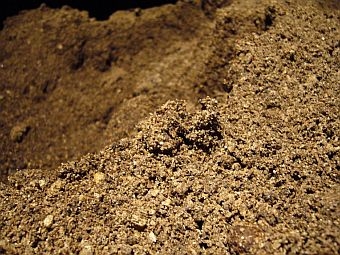 I’m Charlie Nardozzi and this is
I’m Charlie Nardozzi and this is
the Vermont Garden Journal. Let’s get down and dirty about soil. First we
should understand that soil is alive.
What makes soil more than just dirt are
the millions of bacteria, fungi and microorganisms that populate our land.
Their activity allows for water and nutrients to flow freely to our plants. So we should feed the beast
and organic matter is the food.
This time of year we should add
well decomposed organic matter in the form of compost. For low fertility
gardens add a 2-to 3-inch thick layer and work it into the top few inches of
soil.
For higher fertility gardens, a simple 1 inch layer will do. Long term,
get in the practice of adding untreated grass clippings, cover crops, straw and
chopped leaves to your garden beds to build fertility. Add these in fall to
allow the microbes to break them down before spring planting.
Your soil is also loaded with
essential minerals. Now is a good time to do a soil test to determine if and
what to add to balance your soil’s mineral needs. While most soils in Vermont
are high in phosphorous and adding more just ends up running off into our
waterways, potassium and minor elements are sometimes deficient. Look to add
slow release, organic amendments such as greensand or wood ashes for potassium.
Be careful with wood ashes because they also raise the pH. Work in about 20
pounds of wood ash per 1000 square feet of garden on soils with pH below 7.
Most gardens should have between 6.5 and 7.0 pH for best plant growth. Some
soils may be deficient in micro nutrients such as manganese. Adding organic
rock dusts, like Azomite, is a good way to add these nutrients without causing
imbalances.
Now for this week’s tip, when adding bark mulch around established
trees and shrubs, remove the old mulch first. Simply piling it on each year
creates mulch volcanoes which can lead to disease infection and tree rot.
Next week on The Vermont Garden
Journal I’ll be talking about eggplant. Until then, I’ll be seeing you in the
garden!
Resources:
Wood Ash in the Garden
Organic Matter
and Compost